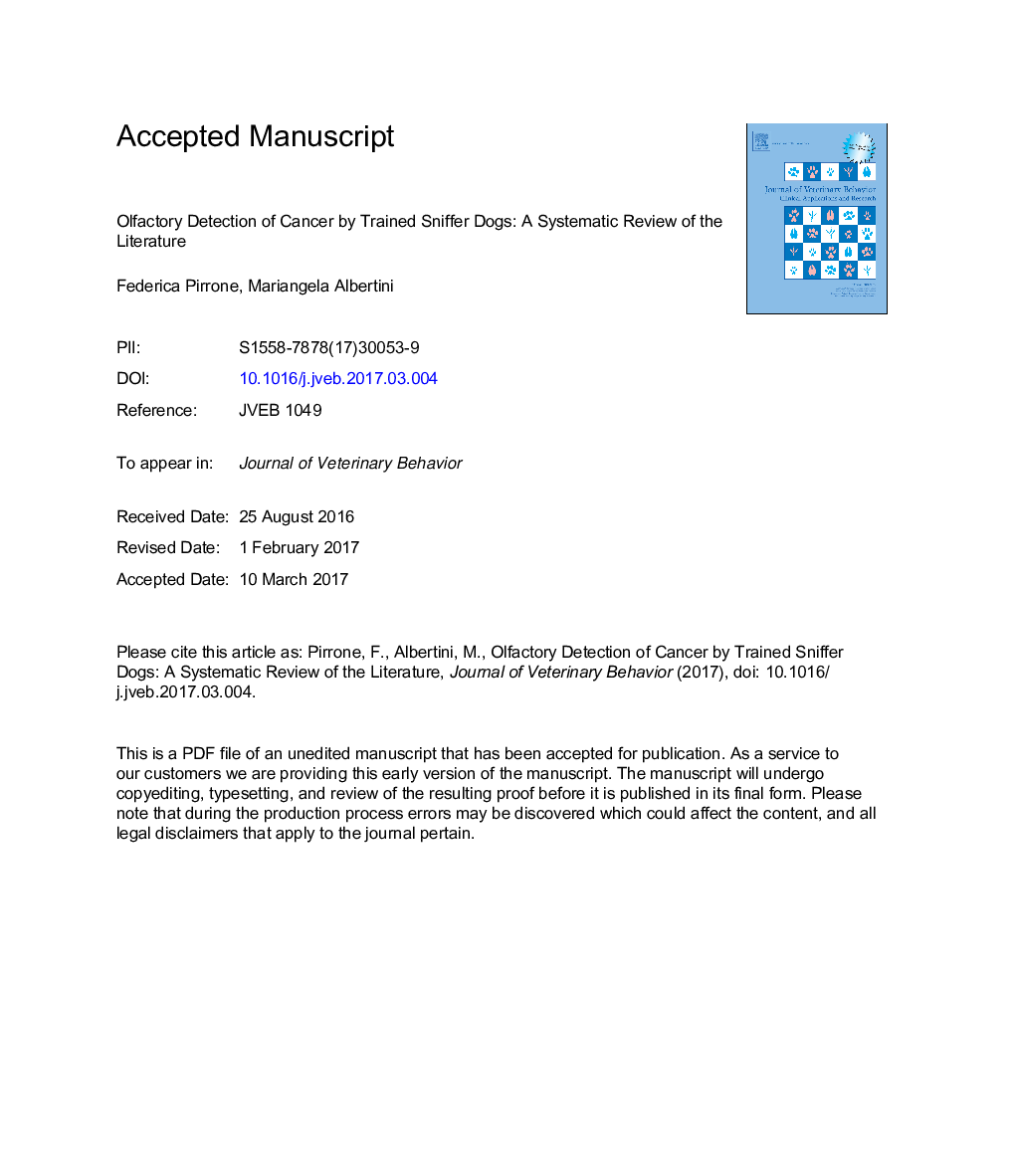| Article ID | Journal | Published Year | Pages | File Type |
|---|---|---|---|---|
| 5535994 | Journal of Veterinary Behavior: Clinical Applications and Research | 2017 | 45 Pages |
Abstract
Early diagnosis of cancer using effective screening methods is crucial for successful treatment. Recently, much attention has been given to the use of odors emitted in the form of volatile organic compounds as diagnostic biomarkers. Studies on special training of dogs to detect different cancers using various odor samples (breath, urine, cancer tissue) have provided promising results. This systematic review highlights the scientific reports testing canine olfaction to detect cancer, dividing them according to the cancer's primary site. Several lines of evidence suggest that dogs may play a critical role in cancer research and diagnosis, eventually be major contributors to a reduction in mortality for certain cancers. Future directions that this field of research should take include efforts to overcome some methodological weaknesses and a certain heterogeneity of performance found across the different studies. Finding adequate responses to the challenges that lie ahead requires also a clear disclosure of what chemical compounds dogs respond to and the quantity of these compounds. Finally, the welfare of dogs involved in these practices should be considered.
Related Topics
Life Sciences
Agricultural and Biological Sciences
Animal Science and Zoology
Authors
Federica Pirrone, Mariangela Albertini,
